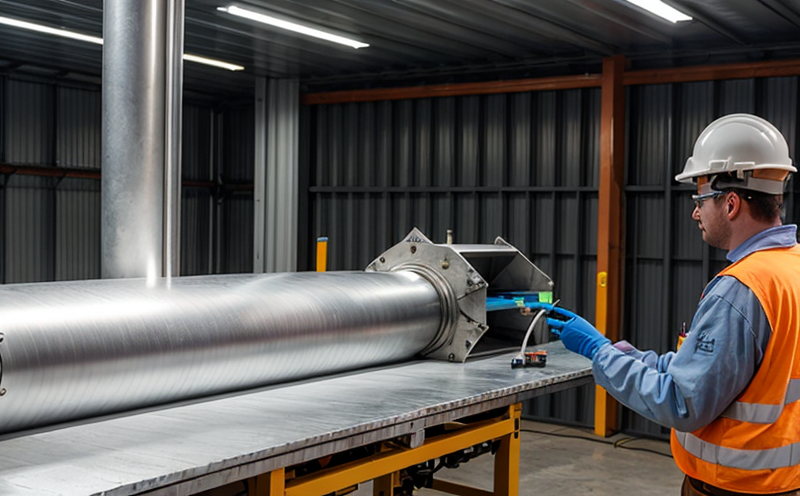EN ISO 6506 Brinell Hardness Testing of Renewable Materials
The EN ISO 6506 standard provides a robust framework for measuring the hardness of metallic materials using the Brinell method. When applied to renewable materials, this testing protocol offers critical insights into their mechanical properties, which are essential in the development and certification of sustainable components used in energy applications.
Renewable materials such as bio-based polymers, wood, bamboo, and composite fibers often exhibit a wide range of hardness characteristics that influence their performance under load. Accurate Brinell hardness testing ensures that these materials meet stringent quality standards required for reliable operation within renewable energy systems. This service is particularly valuable in sectors like wind turbine blade manufacturing, photovoltaic panel design, and biomass utilization.
The process involves applying a calibrated steel ball or hard alloy indenter to the surface of the specimen under a specified load. The diameter of the indentation left on the material determines its hardness value according to the Brinell scale. For renewable materials, this test is crucial for assessing their ability to withstand environmental stresses without compromising structural integrity.
Our laboratory adheres strictly to ISO 6506 guidelines to ensure precision and consistency in every test performed. Proper specimen preparation is paramount; samples must be free from defects and representative of the material type being tested. Once prepared, they undergo rigorous testing using advanced Brinell hardness testers capable of handling diverse sample geometries.
Understanding the mechanical behavior of renewable materials under various conditions helps optimize their use in energy applications. For instance, accurate knowledge of a wind turbine blade's hardness can prevent premature failure due to fatigue or impact damage. Similarly, knowing the hardness distribution within photovoltaic cells enhances reliability and efficiency.
In summary, EN ISO 6506 Brinell hardness testing serves as an indispensable tool for quality assurance in renewable energy projects. By providing precise measurements of material hardness, this service supports informed decision-making throughout the product lifecycle—from initial design to end-of-life recycling.
Benefits
Accurate EN ISO 6506 Brinell hardness testing offers numerous advantages to organizations involved in renewable energy projects:
- Improved Quality Assurance: Ensures that materials used meet the highest quality standards, enhancing product reliability.
- Informed Design Decisions: Provides critical data needed for optimizing material selection and component design.
- Versatile Application: Suitable across various sectors including wind energy, solar power, and bioenergy.
- Regulatory Compliance: Helps meet international standards ensuring compliance with relevant regulations.
The insights gained from this testing process contribute significantly to reducing costs associated with material failures while increasing overall efficiency and sustainability.
Industry Applications
| Industry Sector | Specific Application |
|---|---|
| Wind Energy | Evaluation of blade materials for durability and resistance to environmental factors. |
| Solar Power | Determination of cell integrity in photovoltaic panels ensuring long-term performance. |
| Biomass Utilization | Assessment of compression strength properties enhancing feedstock processing efficiency. |
| Hydropower | Testing of turbine components for wear resistance and longevity. |
The robust nature of EN ISO 6506 Brinell hardness testing makes it a cornerstone in the quality control processes of numerous renewable energy projects. Its ability to provide reliable data on material properties ensures that even the most demanding applications can rely on high-quality components.
Eurolab Advantages
At Eurolab, we pride ourselves on delivering exceptional EN ISO 6506 Brinell hardness testing services tailored specifically to meet the needs of our clients in the renewable energy sector:
- Expertise and Experience: Our team comprises highly skilled professionals with extensive experience in conducting such tests.
- State-of-the-Art Facilities: Equipped with top-tier Brinell hardness testers capable of handling a wide variety of sample types.
- Precision Instruments: Utilizing advanced equipment ensures accurate and repeatable results every time.
- Comprehensive Reporting: Providing detailed reports that go beyond basic values, offering valuable insights into material performance.
We understand the importance of this testing in ensuring the success of renewable energy projects. Therefore, we strive to provide not just technical accuracy but also actionable intelligence that drives better business decisions.





